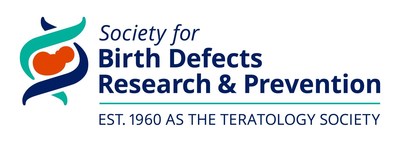A new study using a cutting-edge technology to potentially predict certain birth defects wins the 2021 award for best paper published in the journal Birth Defects Research.
Atlanta-based Study Authors Presented with Prestigious Wilson Publication Award
ATLANTA, June 1, 2021 /PRNewswire/ -- A new study using a cutting-edge technology to potentially predict certain birth defects wins the 2021 award for best paper published in the journal Birth Defects Research. The study used machine learning and natural language processing techniques to predict birth defects associated with exposure to the Zika virus during pregnancy.
The Society for Birth Defects Research and Prevention (BDRP) will recognize Richard Lusk and John Zimmerman of Deloitte Consulting, LLP, as well as Nicole M. Roth of the Centers for Disease Control and Prevention with the James G. Wilson Publication Award during the upcoming BDRP Virtual Annual Meeting scheduled to take place June 24-July 1, 2021.
According to the authors, some research and studies might require individual reviewers to examine complex data from maternal and infant clinical records (including exposure, laboratory, and clinical exam studies) to identify cases of interest. In this study (DOI: 10.1002/bdr2.1767), researchers used natural language processing techniques with machine learning to pull together multiple types of data (numerical, categorical, nominal, and free text) to predict likely cases and non-cases. The authors said the results were "encouraging" and suggest that machine learning and natural language processing techniques can have multiple applications in birth defects surveillance and research, specifically with incorporating multiple data types for predictive modeling. The study also illustrated potential improvements in timeliness while maintaining rigor in sensitivity in the research.
"We like to think that machine learning and natural language processing are techniques that need to be incorporated into most science approaches in the future," explained co-author John Zimmerman. "However, they should not be thought of as panacea, or try to wholly replace many tried and true approaches. Rather they are meant to work alongside existing methods and create efficiencies in producing findings," he added.
Scientists interested in the field of birth defects research are encouraged to attend the BDRP Virtual Annual meeting and can register for it here.
About BDRP
The Society for Birth Defects Research and Prevention (BDRP) is an international group of scientists who study birth defects, reproduction, and disorders of developmental origin. To learn about society membership, visit www.BirthDefectsResearch.org.
Media Contact: Nicole Chavez, 619-368-3259, nchavez@birthdefectsresearch.org.
![]() View original content to download multimedia:http://www.prnewswire.com/news-releases/new-study-using-machine-learning-shows-promise-in-predicting-birth-defects-cases-301302374.html
View original content to download multimedia:http://www.prnewswire.com/news-releases/new-study-using-machine-learning-shows-promise-in-predicting-birth-defects-cases-301302374.html
SOURCE Society for Birth Defects Research and Prevention





